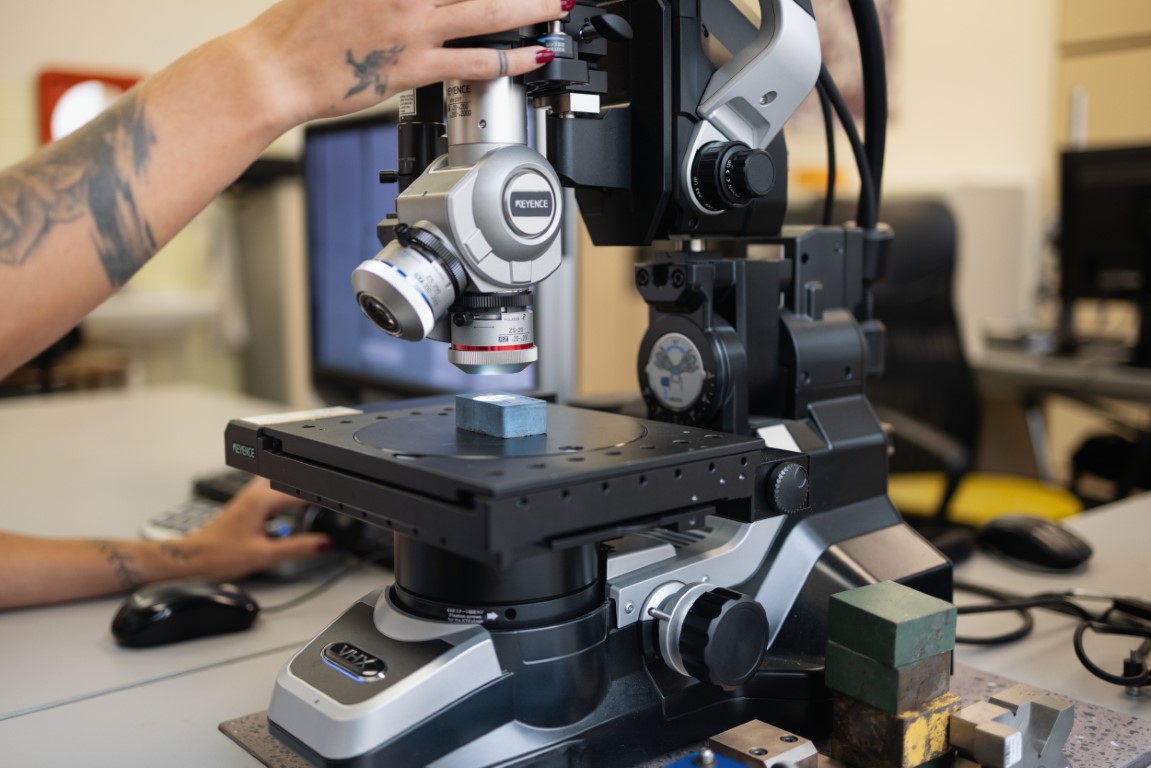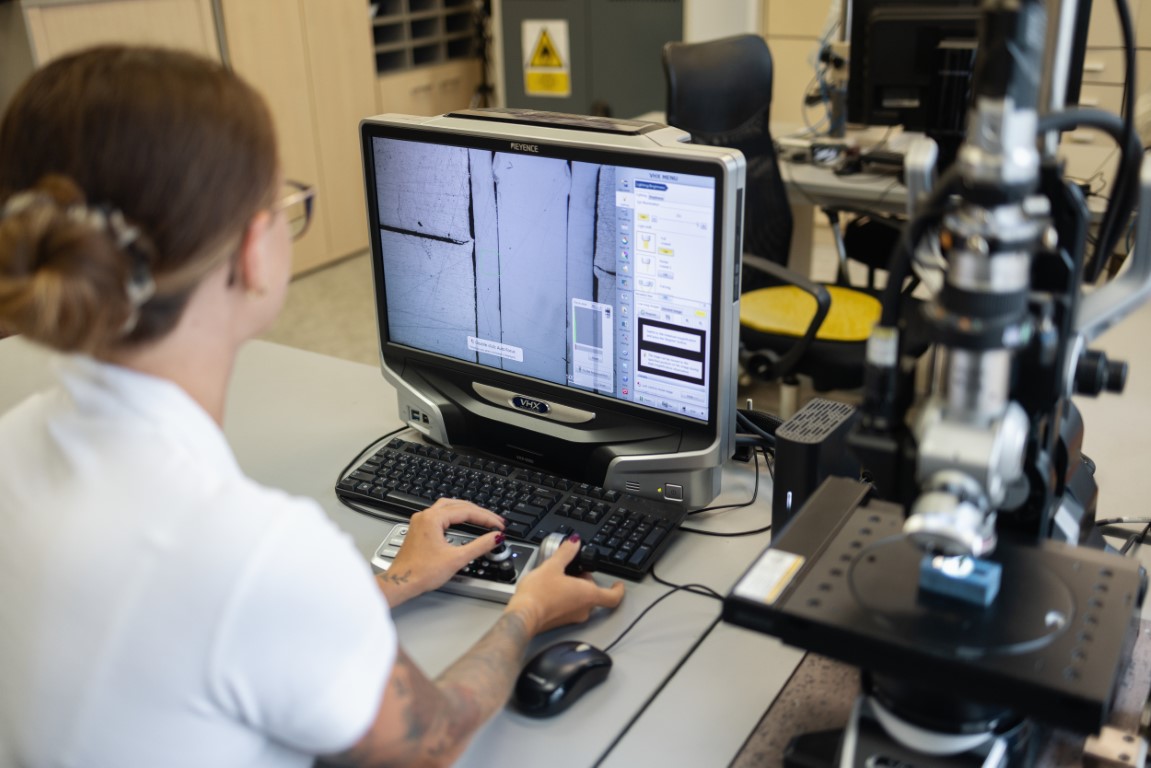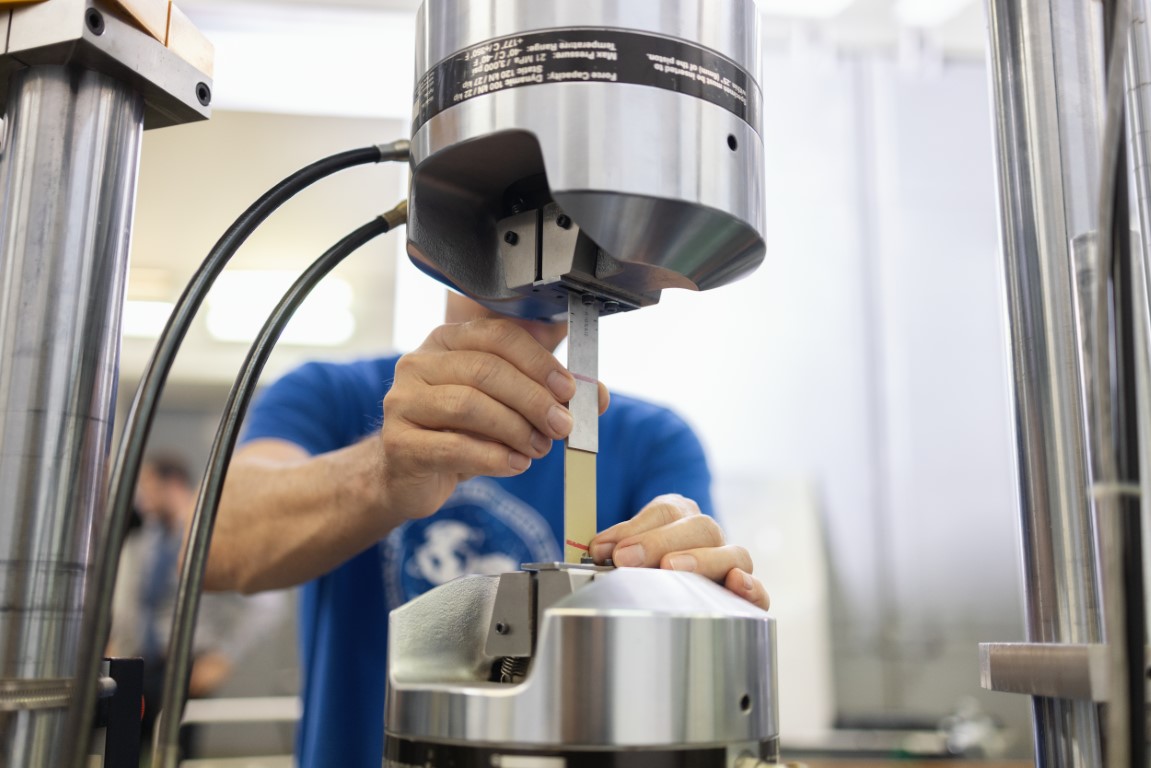Joint strength test
We offer:
- Experiment design
- Sampling and conditioning of metallic and composite materials
- Testing joints at room temperature
- Joint strength at cold temperature (down to -150°C)
- Joint strength at elevated temperature (up to 280°C)
- Fracture surface analysis
- Statement of conformity to specification
Equipment (selection):
- Instron electromechanical testing machine (max. static load up to 100 kN, crosshead displacement up to 1000 mm, load cells with ranges ±1 kN, ±10 kN, ±100 kN)
- Hydropuls Schenck servo-hydraulic machine (max. static load up to 250 kN, crosshead travel up to 100 mm)
- Inova servo-hydraulic machines (max. static loads up to 50 kN, 100 kN, and 200 kN, crosshead travel up to 100 mm)
- test conditioning chambers (test environment in the range -150°C ÷ 280°C)
- Climacell conditioning chamber (long-term environment of elevated temperature and humidity, typically 70°C at 85% r.h.)
- Kimo Instruments thermocouple loggers (specimen temperature measurement in the range -180°C ÷ 480°C)
- X-Sight optical extensometer (strain measurement and digital image correlation (DIC))
Standards within the accreditation of ISO/IEC 17025:
| EN 1465 | Adhesives - Determination of tensile lap-shear strength of bonded assemblies |
| ASTM D1002 | Standard Test Method for Apparent Shear Strength of Single-Lap-Joint Adhesively Bonded Metal Specimens by Tension Loading (Metal-to-Metal) |
| ASTM D3528 | Standard Test Method for Strength Properties of Double Lap Shear Adhesive Joints by Tension Loading |
| ASTM D5961 | Standard Test Method for Bearing Response of Polymer Matrix Composite Laminates |
| ASTM D7332 | Standard Test Method for Measuring the Fastener Pull-Through Resistance of a Fiber-Reinforced Polymer Matrix Composite |



